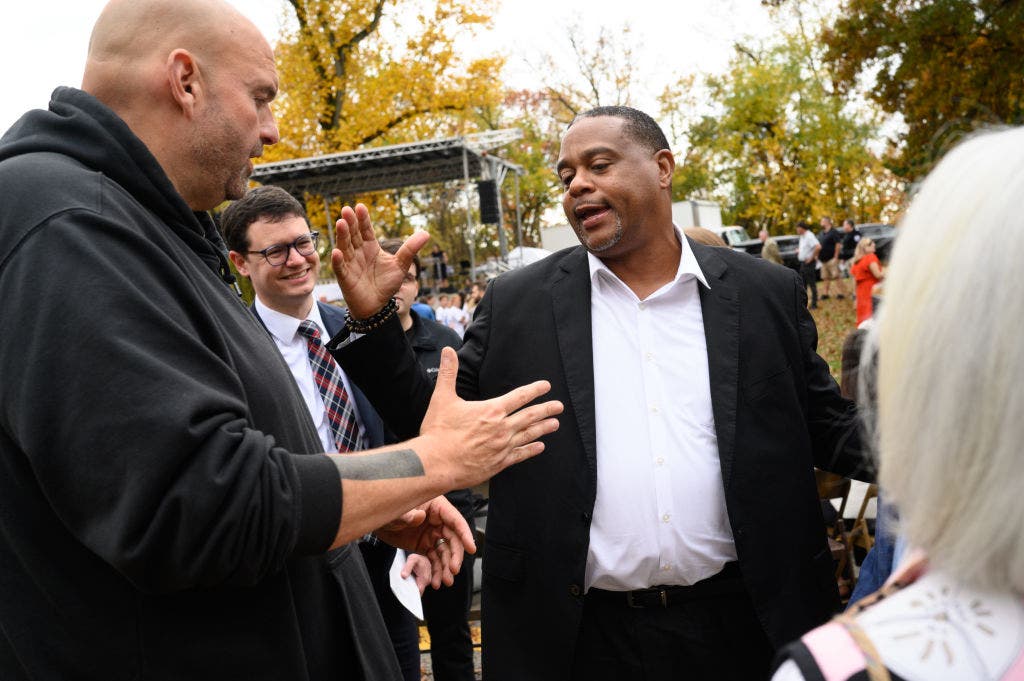Pittsburgh mayor race heats up as progressive Gainey faces challenger O’Connor

Pittsburgh’s mayoral race is heating up as the Democratic Party faces a crucial decision in Tuesday’s primary election. Incumbent Mayor Ed Gainey, known for his progressive stance, is up against Allegheny County Controller Corey O’Connor in what promises to be a closely watched contest.
Gainey, the city’s first Black mayor, has made a name for himself on the national stage by speaking out against President Donald Trump and his policies. He has also been focused on attracting new businesses to Pittsburgh, such as securing the 2026 NFL Draft which is expected to bring a significant economic boost to the area.
One of Gainey’s key platforms is his stance on immigration, as he has pledged not to cooperate with federal ICE operations, calling them a threat to the safety and security of the community. This position has drawn criticism from some quarters, including U.S. Sen. David McCormick, who has urged Gainey to prioritize law enforcement in order to keep the city safe.
On the other hand, O’Connor has positioned himself as the pro-police candidate, garnering support from both Republican donors and traditional Democratic supporters. He has emphasized the need for resources for law enforcement and has outlined plans for revitalizing downtown Pittsburgh.
The race has also seen a Republican contender, retired Police Det. Tony Moreno, vying for the mayor’s seat. However, Pittsburgh has not had a Republican mayor since the 1930s, highlighting the city’s strong Democratic leanings.
As the primary election approaches, all eyes are on Pittsburgh to see which direction the city will take. The outcome of this race could signal a shift in the Democratic Party’s priorities and values, making it a crucial test for both candidates.
In a similar vein, Allentown, the third-largest city in Pennsylvania, is also holding a primary on Tuesday. Mayor Matt Tuerk is facing a challenge from Councilman Ed Zucal, reflecting a similar dynamic of progressive versus conservative ideologies within the Democratic Party.
Both races underscore the ongoing debate within the Democratic Party about its future direction and priorities. With historical ties to the industrial past and a mix of progressive and traditional Democratic voters, Pittsburgh and Allentown serve as microcosms of the larger political landscape in Pennsylvania.
As the primary election unfolds, it will be interesting to see how these races play out and what they signify for the future of the Democratic Party in the state. With stakes high and the candidates’ platforms distinct, voters in Pittsburgh and Allentown will have a crucial decision to make on Tuesday.




